University Research Institutes & Centers
University Research Institutes and Centers
Northwestern is home to more than 20 University Research Institutes and Centers (URICs). These impactful research hubs bridge disciplines across school boundaries.
To learn more about the administration of Northwestern's URICs, visit the University Research Institute and Center Administration (URICA) website.
| Institute | Fields |
|---|---|
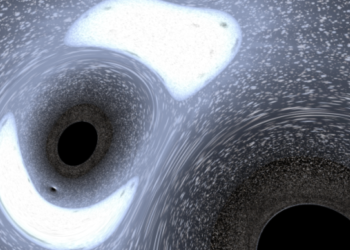 Center for Interdisciplinary Exploration & Research in Astrophysics (CIERA)CIERA advances astrophysics through interdisciplinary research and education. Its research encompasses black holes and dead stars, exoplanets and the solar system, galaxies and cosmology, gravitational waves and multi-messenger astronomy, life and death of stars, stellar dynamics and stellar populations. Focus Areas: Astrophysics, Galactic Astronomy, Computational Astrophysics, Astronomical Instrumentation, Gravitational Waves, Black Holes, Exoplanets, Stellar Evolution | |
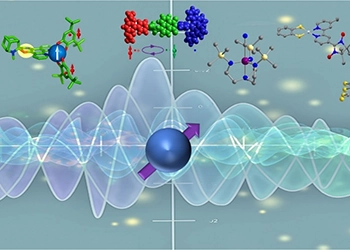 Center for Molecular Quantum Transduction (CMQT)CMQT focuses on developing the fundamental scientific understanding necessary for quantum-to-quantum transduction through a bottom-up synthetic approach that imparts atomistic precision to quantum systems. By studying interactions among quantum spins, excitons, and vibrational excitations in molecules and molecular materials, CMQT aims to facilitate coherent information exchange between quantum systems, a critical component of quantum information science. Focus Areas: Quantum Science; Quantum-to-Quantum Transduction; Quantum Information Exchange; Quantum Materials; Molecular Spin; Photonics | |
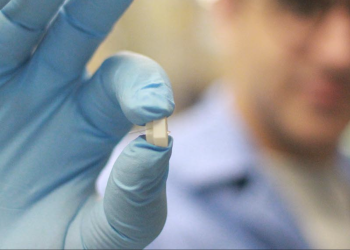 Center for Regenerative Nanomedicine (CRN)CRN leads research in regenerative medicine using nanotechnology strategies. It is especially focused on developing regenerative therapies for the brain, spinal cord, and musculoskeletal tissues, among other targets critical for healthy aging. CRN operates the core facilities Analytical bioNanoTechnology Equipment Core (ANTEC) and the Peptide Synthesis Core. Focus Areas: Nanotechnology, Regenerative Medicine, Neural Tissue Repair, Musculoskeletal Regeneration, Biomaterials, Biomedical Engineering, Translational Science | |
 Center for Sleep & Circadian Biology (CSCB)CSCB integrates basic, clinical and translational research on sleep and circadian rhythms into a unified program at Northwestern University. Its goals include advancing research on sleep and circadian rhythms, understanding the impacts of their disruption and developing treatments for them. Focus Areas: Sleep Mechanisms, Circadian Rhythms, Sleep Disruption, Neurobiology | |
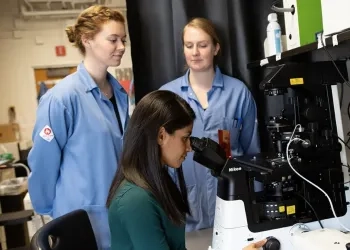 Center for Synthetic BiologyCSB engineers biological systems to solve pressing challenges in health, sustainability, and manufacturing through interdisciplinary research spanning engineering, science, and medicine. The center also leads in education and entrepreneurship, offering NSF-funded training programs and supporting startups that translate research into real-world impact. Focus Areas: Biological Systems Engineering; Synthetic Network Design; Biomanufacturing; Programmable Therapeutics; Ecological and Microbial Design | |
 Chemistry of Life Processes Institute (CLP)CLP is at the forefront of the study of human proteins and their impact on human health and disease. Its faculty study the changes in proteins that underlie diseases, such as neurodegenerative disorders and cancer, creating more sensitive diagnostics to catch disease early, and identifying new targets for drug development and delivery. Focus Areas: Precision Medicine, Protein Science, Diagnostic Development, Therapeutic Discovery, Biomedical Education, Neurodegenerative Disease Research | |
 Impact InstituteThe Impact Institute conducts research on the health of LGBTQ populations. It is committed to improving lives through pioneering research, data-driven evaluation and evidence-based implementation strategies that promote health for all. The institute leads scientific innovations that advance health knowledge, transform healthcare delivery and support thousands of individuals and families. Focus Areas: HIV/AIDS Prevention; Adolescent Sexual Health; Health Promotion Interventions; Health Disparities; Mental Health; Substance Use; Social Determinants of Health | |
 Institute for Innovations in Developmental Sciences (DevSci)DevSci’s “Healthier, Earlier” mission is to promote robust foundations of health, wellbeing and learning for all children as early as possible for optimal outcomes. Research examines normative infant and child development, congenital pediatric diseases, the effects of diverse cultural contexts, the effects of adverse prenatal contexts, school-based enrichment at different developmental stages and adult disease prevention. Focus Areas: Developmental Health; Neurodevelopment; Maternal and Child Well-being; Prenatal Influences; Intervention; Prevention; Health Equity | |
 Institute for Policy Research (IPR)IPR is an interdisciplinary public policy research institute that strives to stimulate and support social science research on significant public policy issues and to disseminate the findings widely—to students, scholars, policymakers and the public. Its research areas range from poverty, race and inequality to methodology and social disparities and health. Focus Areas: Health Inequalities; Research Methodology; Education and Human Development; Policy Analysis; Race, Poverty and Inequality; Community Safety; Immigration; Environment | |
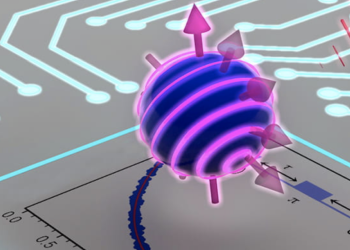 Institute for Quantum Information Research and Engineering (INQUIRE)INQUIRE catalyzes convergent research across materials science, chemistry, physics and engineering to drive the next-generation of quantum technologies for quantum communications, network, computing and sensing applications. INQUIRE also serves as a hub for quantum-related activities at Northwestern; it promotes and facilitates partnerships with academic, government and industrial organizations. Focus Areas: Quantum Science; Quantum Materials; Photonics and Optics; Nanoscale Engineering; Superconducting Technologies; Data Science; Informatics; Quantum Information Systems | |
 Institute for the Study of Islamic Thought in Africa (ISITA)ISITA facilitates scholarship on the Islamic tradition of learning in Africa the role of Islam in African societies. Institute faculty and Northwestern's unique collection of Arabic manuscripts from West Africa has made ISITA a hub for research and graduate training in the field of Islam in Africa. Focus Areas: Islamic Studies; African Intellectual History; Arabic Script Manuscripts; Religious Scholarship; Islamic Arts | |
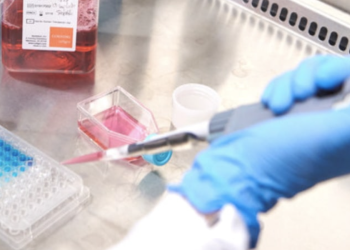 International Institute for Nanotechnology (IIN)IIN brings together exceptional researchers across multiple disciplines to make groundbreaking scientific and technological advances in the field of nanoscience. Its research has applications in transforming the fields of medicine and patient care; identifying energy solutions to decrease dependence on fossil fuels; employing nanomaterials to measure and remediate environmental pollution; and to understand and create even more advanced nanomaterials. Focus Areas: Nanotechnology; Medicine and Healthcare; Energy Solutions; Environmental Sustainability; Advanced Nanomaterials; Security and Defense; Global Health and Safety
| |
 National Institute for Theory and Mathematics in Biology (NITMB)The NITMB aims to integrate the disciplines of mathematics and biology in order to transform the practice of biological research and to inspire new mathematical discoveries. The NITMB leverages close collaborations between experimentalists and theorists to synergize discovery. The fundamental research done by NITMB will stimulate advances in areas as diverse as the environment, medicine and technology development. Focus Areas: Mathematical Biology; Systems Biology; Biological Information Theory; Evolutionary Dynamics; Adaptation and Learning; Complex Systems Analysis; Predictive Modeling | |
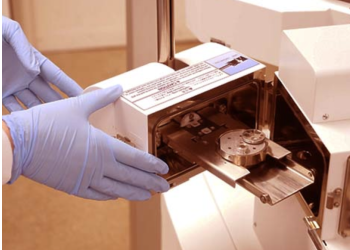 Atomic & Nanoscale Characterization Experimental Center (NUANCE)NUANCE integrates Northwestern's complementary analytical instruments and characterization capabilities. It assists and collaborates with researchers in the physical sciences, engineering and interdisciplinary fields. It provides core analytical characterization instrumentation resources, education and outreach for the Northwestern community and beyond. Focus Areas: Materials Characterization; Electron Microscopy; Surface Science; Scanning Probe Microscopy; Nanofabrication | |
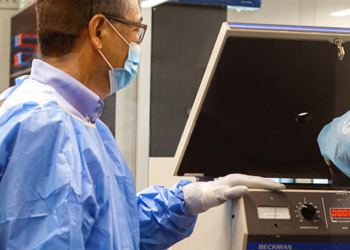 Northwestern University Clinical & Translational Sciences (NUCATS)NUCATS Institute provides scientists with consultative resources and expertise to accelerate how quickly transformative scientific discoveries make their way from the lab to patients and communities. Through its centers and programs, NUCATS develops, demonstrates and disseminates scalable solutions in clinical and translational science and meet our scientists’ urgent needs. Focus Areas: Clinical Research Support; Community Engagement; Research Education; Biomedical Informatics; Biomedical Innovation and Commercialization; Biostatistics and Research Design | |
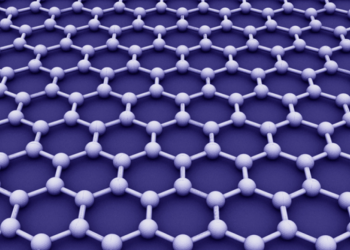 Northwestern University Materials Research Science and Engineering Center (NU-MRSEC)NU-MRSEC advances materials research, education and outreach via active interdisciplinary collaborations within the Center and with external partners in academia, industry, national laboratories and museums. This mission is realized by two synergistic interdisciplinary research groups (IRGs), an active Seed funding program and commercialization, shared facilities, education and outreach programs. Focus Areas: Adaptive Soft Materials; Iontronics; Neuromorphic Computing; Bioelectronics; Sustainable Technologies | |
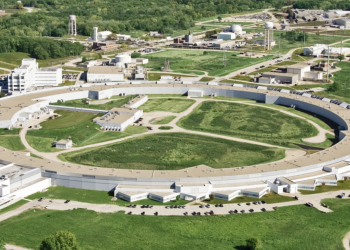 Northwestern-Argonne Institute for Scientific & Engineering Excellence (NAISE)NAISE brings together researchers at Northwestern University and Argonne National Laboratory to create powerful collaborations in fields such as energy, biological and environmental systems, data science and computation, materials, and national security. NAISE provides students and post-doctoral scholars with unique educational and training opportunities. Focus Areas: Automated Discovery; Environmental Sensing; 5G Communication; Materials Imaging; Data Curation; Microelectronics; Advanced Wireless Communication | |
 NSF-Simons AI Institute for the Sky (SkAI)The SkAI Institute develops AI tools to help astronomers analyze data from advanced sky surveys. They create AI systems that use physics knowledge to improve data accuracy, speed up simulations and design better instruments and surveys. SkAI brings together more than 100 team members from 25 partner organizations; it encourages collaboration and training for future leaders in AI and astrophysics. Focus Areas: Astrophysics and AI Integration; Data-driven Discovery; Advanced Simulation Technologies; Instrument Design; Interpretable Machine Learning; Uncertainty Analysis | |
 Paula M. Trienens Institute for Sustainability and EnergyThe Trienens Institute develops sustainability solutions through research, innovation and education. Drawing from the fields of engineering and physical sciences, economics and business, public health, law, and communications, its work centers on basic discovery science and the translational impact of this research. The Institute's education component includes course offerings, a one-year professional degree and an undergraduate certificate. Focus Areas: Sustainability Research; Renewable Energy Innovation; Climate Change Mitigation; Environmental Impact Reduction; Policy and
Public Engagement; Sustainable Materials and Systems | |
 Program of African Studies (PAS)PAS promotes awareness of, study of, research and application of knowledge from and about Africa across interdisciplinary networks of partners and communities of research and learning on the continent as well as across the diaspora. Its approach to African studies re-centers Africans, African American and other black communities in the scholarship and knowledge production of and from Africa. Focus Areas: African History and Culture; Environmental Studies; Development and Human Security; Health Practices and Medical Systems; African Art; Languages and Literature | |
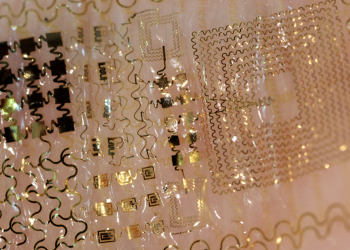 Querrey Simpson Institute for Bioelectronics (QSIB)QSIB supports fundamental, applied and translational research on the development of new, bioelectronic technologies, which can integrate into the human body to provide diagnostic, therapeutic and surgical functions. QSIB provides funding and infrastructure to facilitate the development of these technologies across a broad scope of applications, including medicine, rehabilitation, sports and general wellness, and in research on living systems more broadly. Focus Areas: Biointegrated Electronics; Flexible and Wearable Technologies; Implantable Medical Devices; Wireless Health Monitoring; Transient and Biodegradable Electronics; Health Diagnostics | |
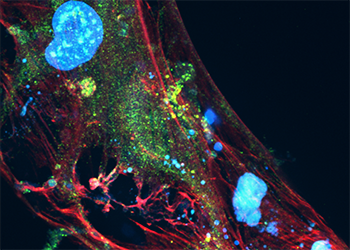 Querrey Simpson Institute for Regenerative Engineering (QSI RENU)QSI RENU advances regenerative engineering through interdisciplinary research and collaboration. It aims to develop innovative solutions for repairing, restoring, and regenerating tissues and organs. By integrating engineering principles with biological insights, QSI RENU fosters breakthroughs in regenerative medicine and translational research, benefiting patients through novel therapies and technologies. Focus Areas: Regenerative Medicine, Tissue Engineering, Biomaterials, Biomechanics, Stem Cell Biology, Translational Research | |
 Spatial Intelligence & Learning Center (SILC)SILC works to understand and enhance STEM teaching, learning and practice that require reasoning about spatial information. SILC has studied the processes and mechanisms that underlie spatial learning and the factors that influence spatial learning. Projects focus on the early connections between spatial thinking and STEM learning, STEM-related concepts and future science education and career options. Focus Areas: Spatial Representations; Intrinsic and Extrinsic Spatial Skills; Spatial Language and Diagrams; Gesture and Embodied Cognition; Educational Interventions |